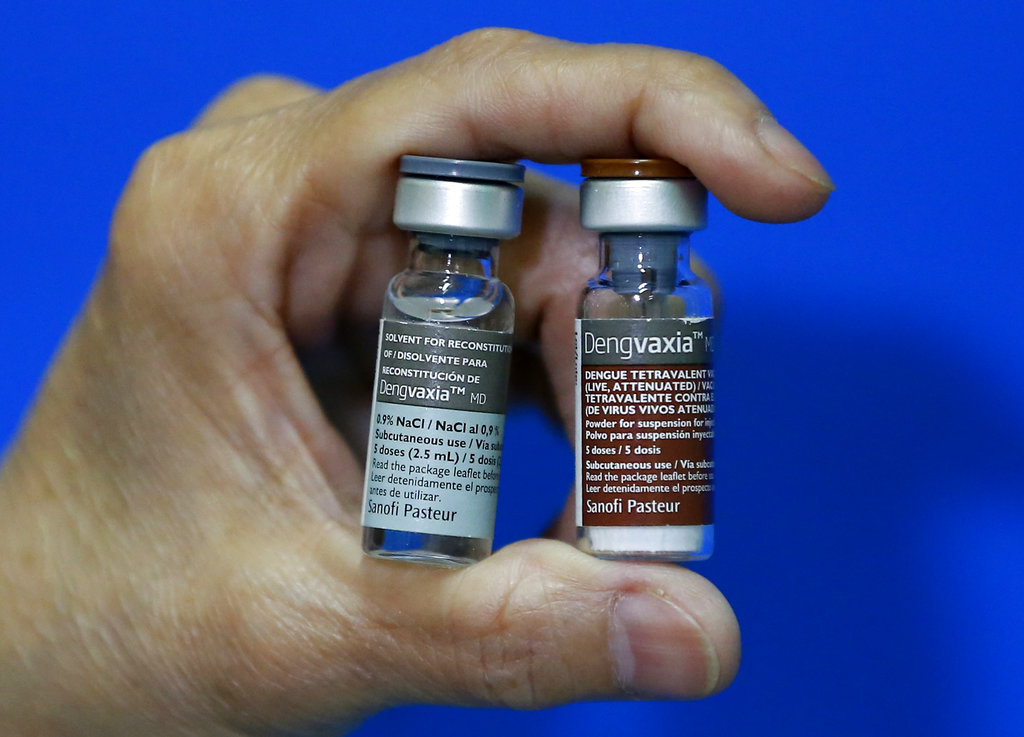The World Health Organization (WHO) has advised its member countries to limit the use of the controversial dengue vaccine Dengvaxia only to those who had contracted the disease.
“Dengvaxia prevents disease in the majority of vaccine recipients but it should not be administered to people who have not previously been infected with dengue virus,” the WHO said in a statement.
It noted that the WHO Global Advisory Committee on Vaccine Safety considered Dengvaxia manufacturer, Sanofi Pasteur’s new results from clinical trial data analyses.
“Those studies indicate that increased risk of severe dengue disease in people who have never been infected affects about 15 percent of the vaccinated individuals. The magnitude of risk is in the order of about four out of every 1,000 seronegative patients vaccinated who developed severe dengue disease during five years of observation,” the WHO said.
“The risk of developing severe dengue disease in non-vaccinated individuals has been calculated as 1.7 per 1,000 over the same period of observation. By contrast, for the 85 percent who have had dengue disease before immunization, there is a reduction of four cases of severe dengue per 1,000 who are vaccinated,” it added.
The international health body said that they raised the possibility of risk for seronegative people, stating in a position paper published in July 2016 that “vaccination may be ineffective or may theoretically even increase the future risk of hospitalized or severe dengue illness in those who are seronegative at the time of first vaccination regardless of age”.
“As this risk had at that time not been seen in the age groups for which the vaccine was licensed, the WHO issued a conditional recommendation, emphasizing the use of the vaccine in populations having been previously infected with dengue virus,” it added.
The WHO recommended that areas where the vaccine has already been administered should enhance measures to reduce exposure to dengue infection.
“For vaccine recipients who present with clinical symptoms compatible with dengue virus infection, access to medical care should be expedited to allow for proper evaluation, identification, and management of severe forms of the disease,” it added.
In the Philippines, some 830,000 children had been vaccinated with Dengvaxia under a government immunization program, which has already been suspended until WHO experts have reviewed the new developments on the vaccine.
Since it became commercially available in 2016, Dengvaxia has been licensed in 19 countries. (PNA)



